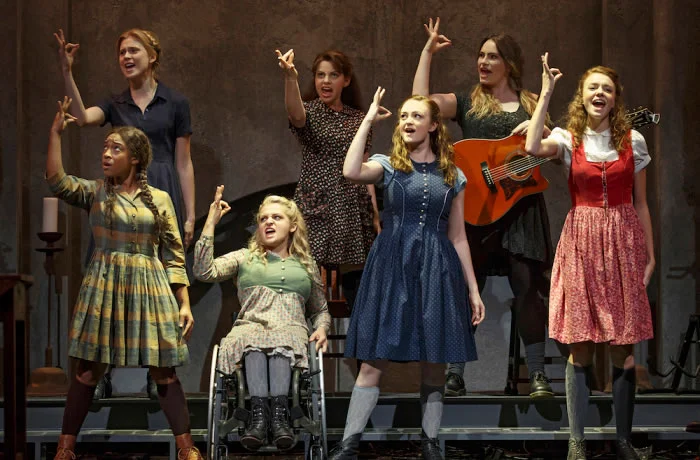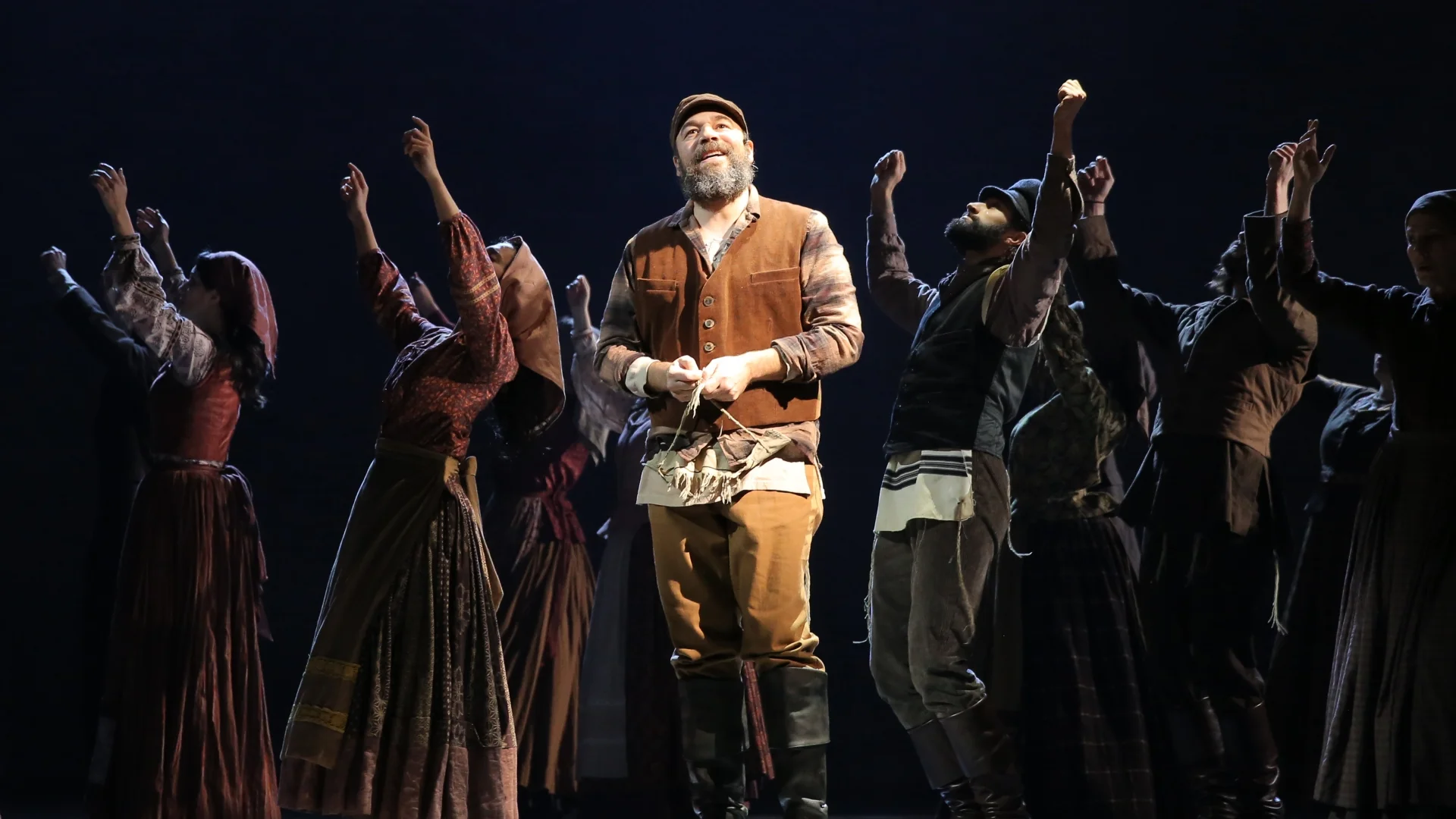The Stage Door
Content for Fans, By Fans
A Community Theater Board of Directors' Letter to Santa...
Dear Santa,
We, the Board of Directors of Anywhere, USA's Players' Club Community Theater would like, this year, to make something of a special request. We've been quite happy over the past few years to have a few of our technical requests granted. The digital light board is working fine, and those new fixtures (I think the 'techies' call them 'instruments') just make everything on stage look great. I'm not sure our patrons are noticing, but we are.
Tour Survival Guide: 12 Tips for Life on the Road
Getting cast in an international tour is a huge thrill for any performer. You get to see the world and share your passion with foreign audiences. You'll enjoy many moments but also face challenges that come with continuous travel. While touring Japan, here are some tips I picked up along the way.
Broadway Christmas Party
‘Twas the night before Christmas, Broadway all alight,
And Aladdin was making three wishes that night.
Anastasia was wishing to know who she is,
And Miss Saigon was wishing she soon would find Chris...
Why Children’s Theatre Shouldn’t Be Afraid to Tackle Important Issues
We live in bizarre times.
I don’t think I need to tell people that for them to know, but I think it bears reiterating just how bizarre things truly are. In recent years, more of us who create and produce theatre have been contemplating the question of how to respond to the current social and political climate, and what can artists do in these times to try and make the world a bit better, as many of the issues we face continue to leave us divided and uncertain about the world we will leave for future generations. Yet there is one demographic that should especially be considered, when thinking about this topic.
“A Christmas Story: Live” – The Good, The Bad and the Ehh
The latest live televised musical “A Christmas Story,” brings Pasek & Paul’s 2012 Broadway adaptation of the nostalgic Christmas film to the screen. But does “A Christmas Story” fulfill my Christmas wishes? Or is it a big lump of coal? Here’s my take.
Monday Motivation: A Short Dive into Three Positive Pieces of UK Theatre News.
Chicago is coming back to the West End!
Just in time for Chicago turning 21 in 2018, the spectacular production is coming back to the West End, and will be playing at the Phoenix Theatre from 26th March. Featuring iconic showtunes like All That Jazz, Cell Block Tango and Razzle Dazzle, Chicago's jazzy songs and seductive storyline have made it one of the most popular musicals of all time. Casting for the production will be announced next year, and I already can't wait.
Casting Disabled Actors Leads To Better Shows
This summer, The New York Times published Alexis Soloski’s article “Actors With Disabilities Are Ready, Willing and Able to Take More Roles[NG1] ,” which is about another facet of the diversity in theater issue. The surge in colorblind casting is perhaps the most important theater trend of the year but Soloski points out that true diversity on stage means more than skin color. Increasingly, disabled actors are being showcased, whether portraying a character written with a similar condition in mind (like having Gregg Mozgala, an actor who has cerebral palsy, play a CP patient in the Williamstown Theater Festival’s production of “Cost of Living”) or casting a disabled actor in a role that wasn’t written specifically for one (like casting paraplegic Ali Stroker as Anna in “Spring Awakening,” making her the first wheelchair-user to perform on Broadway and at the Tonys). We’re seeing this on a smaller scale outside the theater too. Deaf model Nyle DiMarco recently won “Dancing With The Stars” and Hollywood is starting to wise up the issue, albeit slower. [NG2] Much, much slower. [NG3]
Being & Surviving: Performing with High-Functioning Anxiety
There is a huge misconception that exists around the identities of performers - be it of a singer, dancer or actor of any kind. The generalization that is most commonly held is that we are all, of course, inherently confident and self-assured individuals who function exceptionally well under pressure. Right? Wrong. Well, at least, in my experience, this assumption does not, contrary to popular belief, hold true for a significant, and largely unspoken, group of individuals that exists within the performance industry. This isn't to say that there aren't individuals who inherently thrive in the spotlight, without much of a thought about nerves or the like, there are. And, honestly, I envy them. But I'm here to talk about a career in performance from a lesser known angle.
How Can Musical Theater Help Change Our World?
As a teacher and musical theater director, I have found myself struggling. I am turning on my television, going on Facebook, or browsing the internet and seeing so many discouraging things out there. We have polar opposites vying for the presidency, violence against law enforcement and minorities, sexism, racism, whitewashing casts, and even clown threats to our society. How do we explain this to children? How do we teach them to be better human beings with compassion, humility, and understanding? What can we do as musical theater educators and community theater programs?
How Educational Elitism is Hurting Theatre
We’re getting closer to the end of August, meaning that many students across the nation have just started – or are about to start – the Fall 2015 semester at the college or university that they currently attend. Personally, as I near the start of my last year of college, I am reminded of something that I’m sure many other college theatre students in America have faced at one point or another, and if they haven’t, probably will eventually. It is a problem that I believe is very unfortunate not just for us, but for the entire theatre community. Whenever I tell someone that I went to a local state university in Willimantic – as opposed to one of the larger and more well-known universities in the country – I get very similar reactions from various people. Sometimes it appears in the form of a “Well, why do you go there? Why not [insert school here]?” as if they believe that I am not as smart or talented as someone else might be, while in other cases it appears in the form of either a “Huh” or “Oh, okay” as they nod their heads, heavily indicating that they don’t think much of the college education I have received. In a few other cases, the reaction is merely complete silence.









